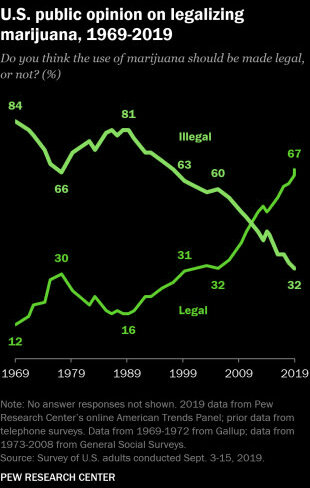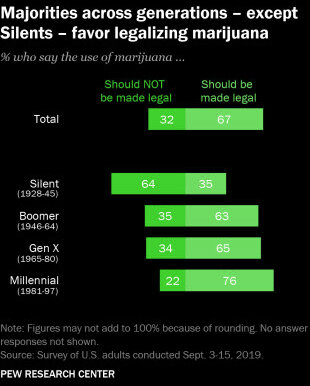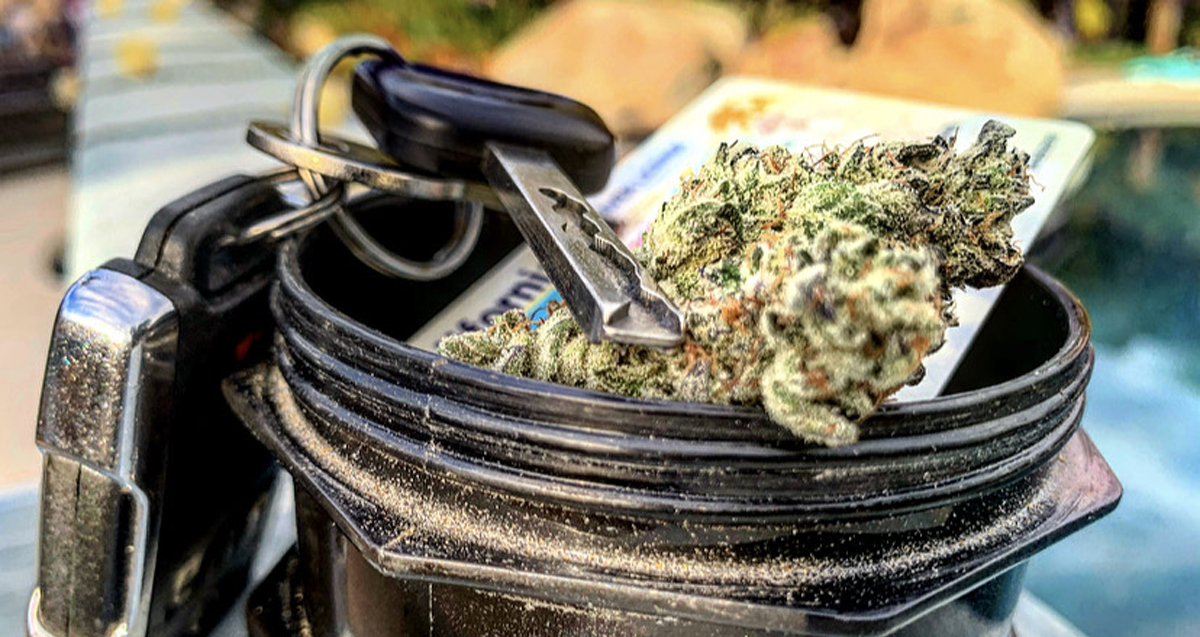
Prediction: The hill that cannabis prohibition will die on will be the battle over motorists’ rights.
Don’t get us wrong, there are far, far more important issues that need to be debated and solved when it comes to any large-scale legalization efforts, but this particular issue is pretty much all the other side has left.
We were told that legal weed would create more crime. It doesn’t. We were told legal weed would lead to more kids using it. It doesn’t. We were told that it is unhealthy to smoke it – nope – or that THC is dangerous – nope – or that if we let adults choose whether or not they want to use it on their own time, it will make their workplace less safe – nope.
So this is it. It’s all they’ve got. They will spend the next several years trying to manufacture fear among the American people – but more importantly, among the ignorant lawmakers in positions of power – that legal weed will lead to mayhem on our roads.
Buckle up, fuckers, we’ve got a wild ride of an article for you today. If you make it to the finish line you’ll be several laps ahead of this tired, old argument about the supposed dangers of driving… on weed!
BY THE NUMBERS

The more that science focuses on cannabis, the clearer it becomes that the public has been force-fed a bunch of bullshit and the latest Pew poll shows that an overwhelming majority of Americans are done eating off of that menu. A solid 67% of those polled are now in favor of nationwide legalization of cannabis, and much like those researchers analyzing the plant in a lab, the closer we look at the numbers the more interesting they get.
For example, in 2010, 52% of Americans were vocally opposed to such a legalization measure when polled. That number has fallen by 20% in less than 10 years. The best part is, it’s just going to keep dropping. It’s important to remember that 1 in 4 Americans think that the Sun orbits around the Earth, so there are certainly some people that you just can’t reach, but we still have millions more ready to be educated about the many benefits of cannabis reform.

Another interesting statistic shows that the only generational age group that voiced majority opposition to nationwide cannabis legalization was those who were born before the year 1946. Even the Boomers (1946-1964) are on board with this, so go easy on the memes this Thanksgiving (they won’t understand anyway).
The numbers break pretty clearly down the lines of the two major political parties in this country, with one party’s voters showing a much higher level of support than those from the other party. Do we even need to mention which party is which? This week The MORE Act is said to be headed to the floor of the U.S. Congress for a full vote. Watch how that vote goes in relation to party lines, and then let’s all watch to see what happens if it advances to the Senate.
SORRY FOR THE DETOUR
Ok, that was a lot of numbers but they should illustrate the rising tide of cannabis support that prohibitionists face, and it may help outline their increasingly desperate arguments when it comes to cannabis and driving.
Here is the cold, hard fact about driving while under the influence of cannabis – it cannot be solved or stopped with any law or sobriety test.
Here’s the good news though – it’s not a problem that needs to be solved or stopped.
The two most recent peer-reviewed studies on the matter prove this… if you ask us, anyway.
Due for release in the December 2019 issue of ScienceDirect, researchers analyzed the driving habits and motor skills of 91 human volunteers who were given either a “high” dose of THC (12.5%, lol), a low dose of THC, or a placebo. They were then given driving tests at various intervals beginning a half an hour after ingestion, then 24 hours after ingestion, and then 48 hours after ingestion. Their study clearly shows that the drivers who were “under the influence” of whatever suspect THC they were given drove slower than the placebo group on average. The groups who ingested the THC also showed “no clear effect of smoked cannabis on lateral control” according to the researchers and, as we all know, there was no sign of residual effects over the next day or two.
That’s not how it works, right? You know that and we know that but you might be surprised to learn how many people just don’t understand that having cannabis in detectable levels in your system is in no way a judgment of your ability to operate a motor vehicle. That’s why you never see us promoting the random “Treat Cannabis Like Alcohol” arguments that crop up every so often – it’s not alcohol, it deserves better.
Ok, so the latest research shows that cannabis makes young adults drive slower but it has no discernible effect on their steering or lateral decision making. Great. But wait, there’s one more study that was published on November 1st in the Journal of Traffic Injury Protection. Let’s allow the report to speak for itself:
”For lateral control, there were no observed effects on variability in lane-keeping. Cannabis users exhibited lower frequency steering and fewer and less variable steering reversals compared to nonusers. For longitudinal control, cannabis users drove slower than nonusers and more accelerator pedal holds and a lower accelerator pedal reversal rate were observed.”
GREAT, right?
Well, there are studies, there are Results, and then there are Conclusions. That’s right, Results and Conclusions are not one and the same, although they both usually correlate if in no other way than they both adhere to reality… not this time though. So, the second group of researchers using a wholly different method produced essentially the same results as the report coming out next month. But in this Traffic and Injury Protection report, the researchers conclude that:
“Young adult drivers who use cannabis in our study drove slower and produced significantly less frequent steering and accelerator pedal inputs than drivers who did not use cannabis. This suggests that lasting effects of cannabis use persist and may lead to detrimental driving behaviors even after intoxication has subsided.”
Wait… what? In a nation whose general population of motorists drives faster than their posted speed limit on average, cannabis is slowing them down – particularly newer/younger drivers. Cannabis also makes them more fluid on the pedals and less fidgety with the wheel. All of that is “detrimental driving behavior” is what we are now supposed to believe. Ok, Boomers… DANGIT, I SAID I WOULDN’T SAY IT…
Their half-baked conclusion concludes, “These findings have implications for legislation in support of legalizing cannabis because sober cannabis-using drivers may still be a public health concern.”
Sober. Cannabis-using. Drivers.
Put that phrase in your pipe and smoke it because I’m not sure what else you’re supposed to do with it. But they are clear in their intent to sway future legislation and that’s where we call bullshit on their conclusion.
Again, time for some more cold, hard truth about cannabis and driving. If you like to drive fast, cannabis probably will not slow you down, and vice versa. It generally enhances our moods and our core being, it doesn’t mutate them. We’ve said it so many times but it bears repeating – we already have hundreds of different traffic laws in this country. Enforce them. If I’m stoned and speeding, nah, I’m just speeding. The same goes for traffic accidents. The way that prohibitionists and law enforcement are stacking the stats in their favor is by tallying every accident where one or more of the drivers had any cannabis in their system as “cannabis-related”, and labeling that driver as “cannabis-impaired”.

These recent studies show that ingested cannabis has zero residual effect on motorists a day or two later, but we all know that it can remain detectable in your system for a month or more. A convenient way to pad the numbers against the plant.
Even the persistently anti-cannabis National Institute on Drug Abuse updated it’s webpage on this topic recently and although the page begins with a crotchety anti-weed screed…
“Marijuana significantly impairs judgment, motor coordination, and reaction time, and studies have found a direct relationship between blood THC concentration and impaired driving ability.”
… they contradict themselves at the very end (probably hoping people don’t scroll that far down):
“However, a large case-control study conducted by the National Highway Traffic Safety Administration found no significant increased crash risk attributable to cannabis after controlling for drivers’ age, gender, race, and presence of alcohol.”

The bottom line is that the facts are on our side and we must not give an inch – let alone a mile – on this issue. No roadside ambush checkpoints for cannabis, no dumbass breathalyzers either. No more illegal searches based on phantom odors or because we squinted when they put that Maglite in our eyes, no more swabbing our saliva or sniffing our piss.
Get every pill-popping boozehound off the roads, then let’s look at the numbers.
It may sound like we are advocating for impaired driving. Don’t get it twisted. We are advocating for sovereign rights and adults being treated like adults. There are far too many variables that factor into every individual’s level of “impairment” but even the labcoats are telling us that impairment slows people down and keeps them on a straighter path when they get behind the wheel. I’ve eaten too much breakfast before and regretted driving afterward, but I’ll never fight against your sovereign right to copious amounts of waffles.
Keep updated on all the latest news and updates in the Cannabis industry here at Beard Bros Pharms by signing for our Friday Sesh Newsletter here. Always Dank and Never Spam!
- Hawaii’s HB 302 Becomes Law After Governor’s Unexpected Reversal
- Thailand’s U-Turn on Recreational Cannabis Use
- Chicago Police Department Revises Policy on Searches Based Solely on Marijuana Odor
- Ohio’s Senate Bill 56 Postponed, Leaving Details of Issue 2 Still Unresolved
- Sports Stars and Well Known Entertainers Join Forces Calling on Trump for Cannabis Reform
- Pinsky and the Brain: Bill White on His Journey to Consulting in Cannabis














